Why Did Thousands of U.S. Homes Receive Mystery Seeds of Unknown Origin in 2020?
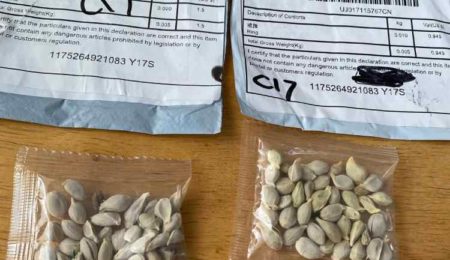
In the year 2020, when the COVID-19 pandemic made most of us overly sensitive to our surroundings, something bizarre was happening in the U.S. that invaded people’s personal spaces and sent stress waves across the country! Packages containing unknown, mystery seeds were mailed from China to thousands of postal addresses, and no one knew why. The strangeness of the entire event unnerved the residents of all 50 states, whose lives were already turned topsy-turvy by the virus.
Was this a well-planned conspiracy to create another disaster or destroy American crops? The absurdity of it was rightfully frightening! And yet, anything seemed plausible during COVID!
Today, recent news flashes have replaced the story of the mystery seeds. But do we know for certain what really happened back in 2020? Let us revisit the story of the mystery seeds!
Mystery seeds from China were mailed to thousands of U.S. households.Â
Residents of every state in the country started getting unsolicited packages with labels and customs declarations that indicated they were from China. These packages contained seeds that no one apparently ordered. It created country-wide panic and anxiety. After all, the pandemic was still gnawing at everyday lives. How did something so risky, like seeds, pass customs? Most of the packages described the contents as pieces of jewelry, like “rose stud earrings,” “ear studs,” or plain “jewelry.”
The U.S. government was concerned. After all, unknown foreign seeds could always threaten American agriculture. Later, it was revealed that these seeds were also being sent to other countries, including the U.K. and Australia. Although they mostly came from China, countries like Uzbekistan and Kazakhstan were also on the mailing labels.
Do not plant the seeds!
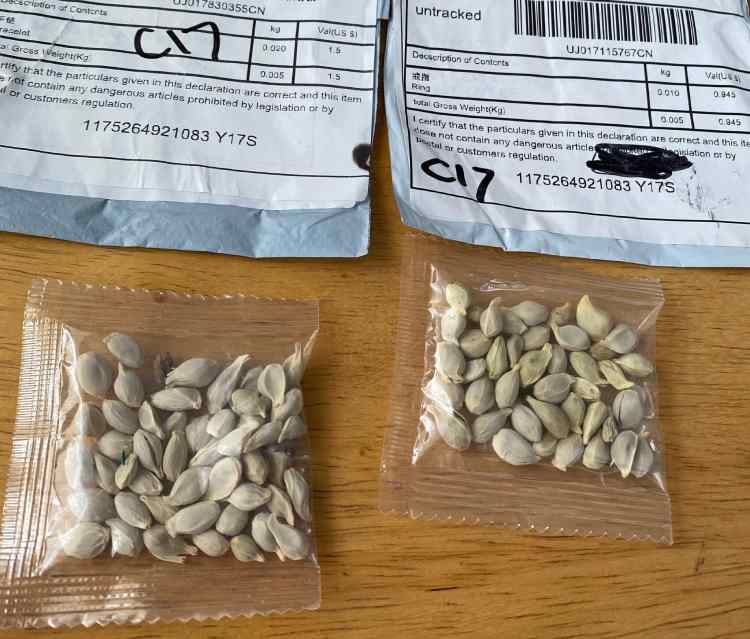
Amidst anxiety and fear, the instructions from the government were pretty clear. “Do not plant the seeds!” The Commissioner of Agriculture and Forestry, Mike Strain, said that any foreign, unknown specimen poses a threat to the agricultural industry or the general environment until they are identified. The USDA planned to test the seeds themselves to determine if they were a threat. State officials asked the recipients to keep the seeds sealed in plastic bags until they are collected. But for a few, the warning came too late, and the seeds were already planted!
Minnesotans have received unsolicited packages of seeds appearing to come from China. If you've gotten unsolicited seeds:
-Don't throw them away.
-Don't plant the seeds.
-Contact Arrest the Pest at 1-888-545-6684 or [email protected]
More: https://t.co/CmeMHWUNjS#MNAg pic.twitter.com/yLIAMaZLyn— Minnesota Department of Agriculture (@MNagriculture) July 27, 2020
Since the mystery seeds began flooding in, wild conspiracy theories sent waves of fear across the entire country. Despite all the theories that tried to offer explanations for something so strange, none stuck, and none could be proven. There were rumors about agricultural warfare, crop invasion, Chinese takeover, another virus, fake ballots, and even eight-foot-tall pet-eating Venus flytraps that would grow from the seeds and eat your pets!
An Arkansas man planted the seeds and was surprised!
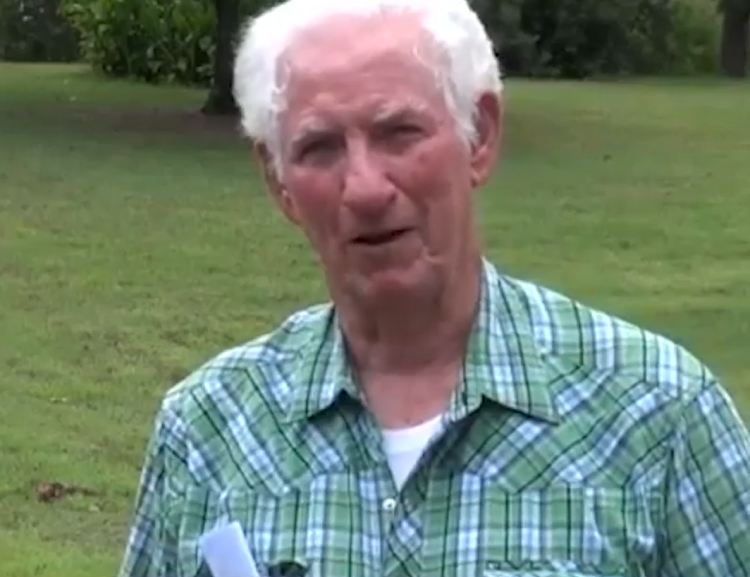
Booneville resident Doyle Crenshaw was curious and had already planted the seeds before the US Agriculture Department’s warning. His package read “studded earrings.” Crenshaw wanted to see what grew. Every two weeks, he put Miracle-Gro in the soil, and the plants started to grow at a shocking rate. It produced big, white fruits and orange flowers, a bit like squash. The fruits were huge, about 14 inches long and four- or five inches round. When he broke one open, it smelled sweet. Crenshaw received more packages of the same seeds later. He grew them for two months before it he destroyed them by burning them. Upon investigation, the experts in Arkansas stated that his plant was a species native to South and Southeast Asia called the “Chinese Watermelon,” a vine whose fruit is known as a wax gourd or winter melon.
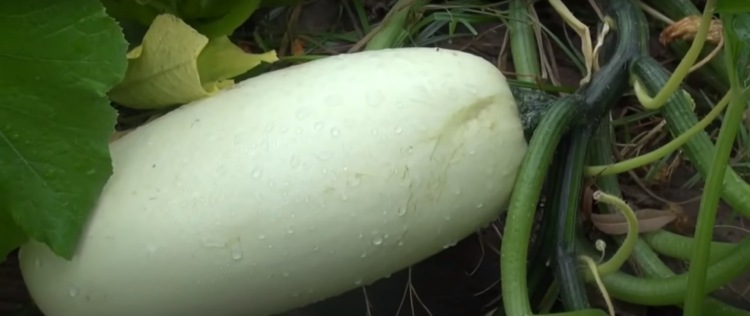
Other seeds identified were beans, melons, cucumbers, marigolds, sunflowers, peas, lentils, carrots, radishes, kale, cabbages, ornamental grasses, roses, morning glories, and many other plants. Most of them were considered harmless. Government botanists identified around 560 different species from all seed packets.
Has the strange case of the mystery seeds almost been solved?
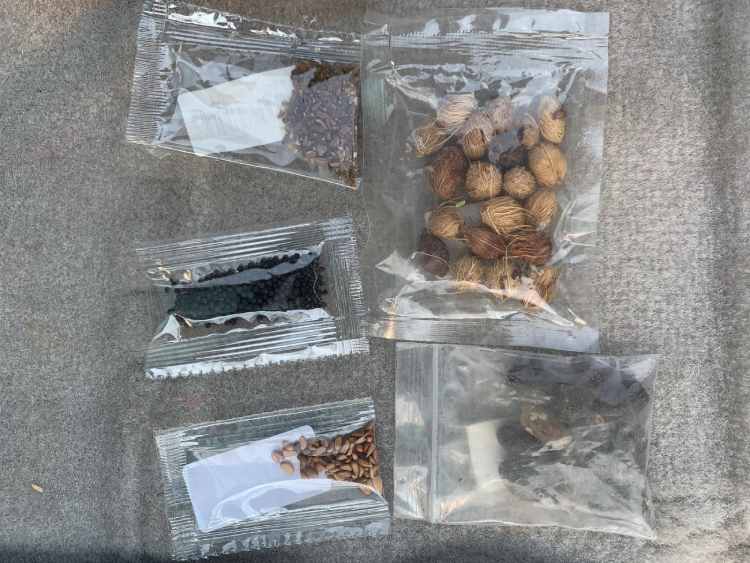
According to reports from the USDA, out of 16,000 samples collected, 5,000 have been identified, and most of these seeds appeared harmless. No evidence was found to verify that the seeds were aimed to damage or harm American agriculture, or anything else for that matter. When the USDA discussed this with Amazon, they took action and banned the import of plants, plant seeds, and plant products into the United States. Wish, another e-commerce site did the same. Slowly, the seeds stopped coming, which was definitely to everyone’s relief.
As mentioned earlier, all evidence and logic pointed towards this being an illegal e-commerce strategy mostly known as a “brushing” scam. Brushing is quite common but tricky. Companies want to be listed high on e-commerce platforms. Ranking algorithms are usually kept secret, but they supposedly depend on sales volume and positive feedback. Therefore, to do that, they ship items, usually inexpensive ones, to large groups of people who did not order them at all. Then, using the shipping data, these companies post positive reviews online to boost their sales. As ratings get higher and transactions increase, the company’s products start coming to the top of the search results on e-commerce websites like Amazon. Under this scheme, a lot of people had previously received cheap hair ties, plastic trinkets, etc., before.
Washington State Department of Agriculture wrote, “USDA doesn’t have any evidence that it is anything other than a brushing scam.” Though this is a plausible, logical explanation, some factors still remain. Why would scammers choose a year like 2020 and items like seeds if they wanted the scam to work? Surely a scam would need to not draw attention to it if you wanted it to work.
Could the mystery seeds have a simpler explanation?
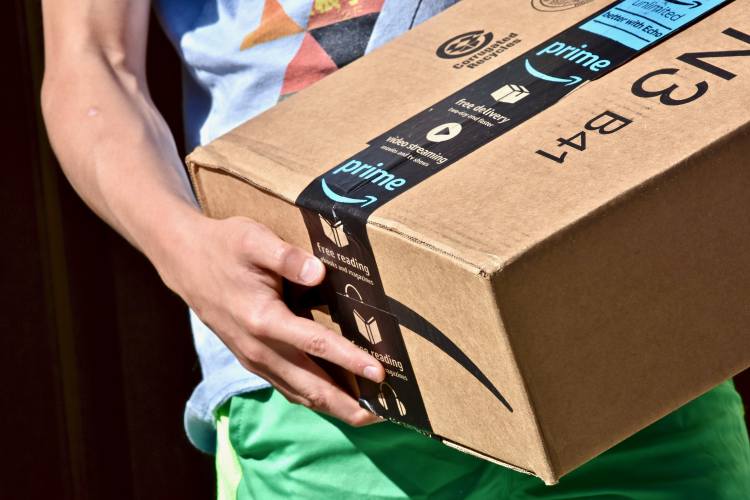
Media reports in 2020 stated that Amazon was quoted as saying that when they investigated a few of the seed packages, they looked like genuine Amazon orders that got delayed due to the pandemic. USDAÂ found out that many recipients had, in fact, ordered seeds online. Unknown to the buyers, a lot of these sellers were Chinese companies based in Hong Kong, Shenzhen, Changsha, etc., with bad reviews. Tracing their orders and comparing them with the packages received, a lot of them did match their orders. Amazon also corroborated this.
But the question remains, how did so many people order seeds at the same time, and eventually forget? This, too, could be explained.
According to writer Chris Heath from the Atlantic, during the shutdown, a lot of people dedicated their time to gardening. This created seed shortages, resulting in delayed delivery. A lot of these seeds were unknowingly ordered from Chinese companies that were in lockdown. It created a backlog of orders, and all seeds started to get delivered around June-July when the lockdown was partly lifted.
Times were strange, and anxious people seeing labels from China did not connect the packages to something they had ordered months earlier. When Chris delved deeper, many recipients had indeed ordered seeds online, some of which took months to arrive. He contacted USDA with his theory of forgotten orders. But according to them, the investigation into the Chinese mystery seeds is ongoing, and therefore, they cannot officially release information yet. Moreover, the agency’s focus is on stopping this agricultural threat, not on proving why it happened.
But truth be told, be it brushing, forgotten orders, or both, the strange bit in this story is how they all spiraled into action around the same time, the same year!
























